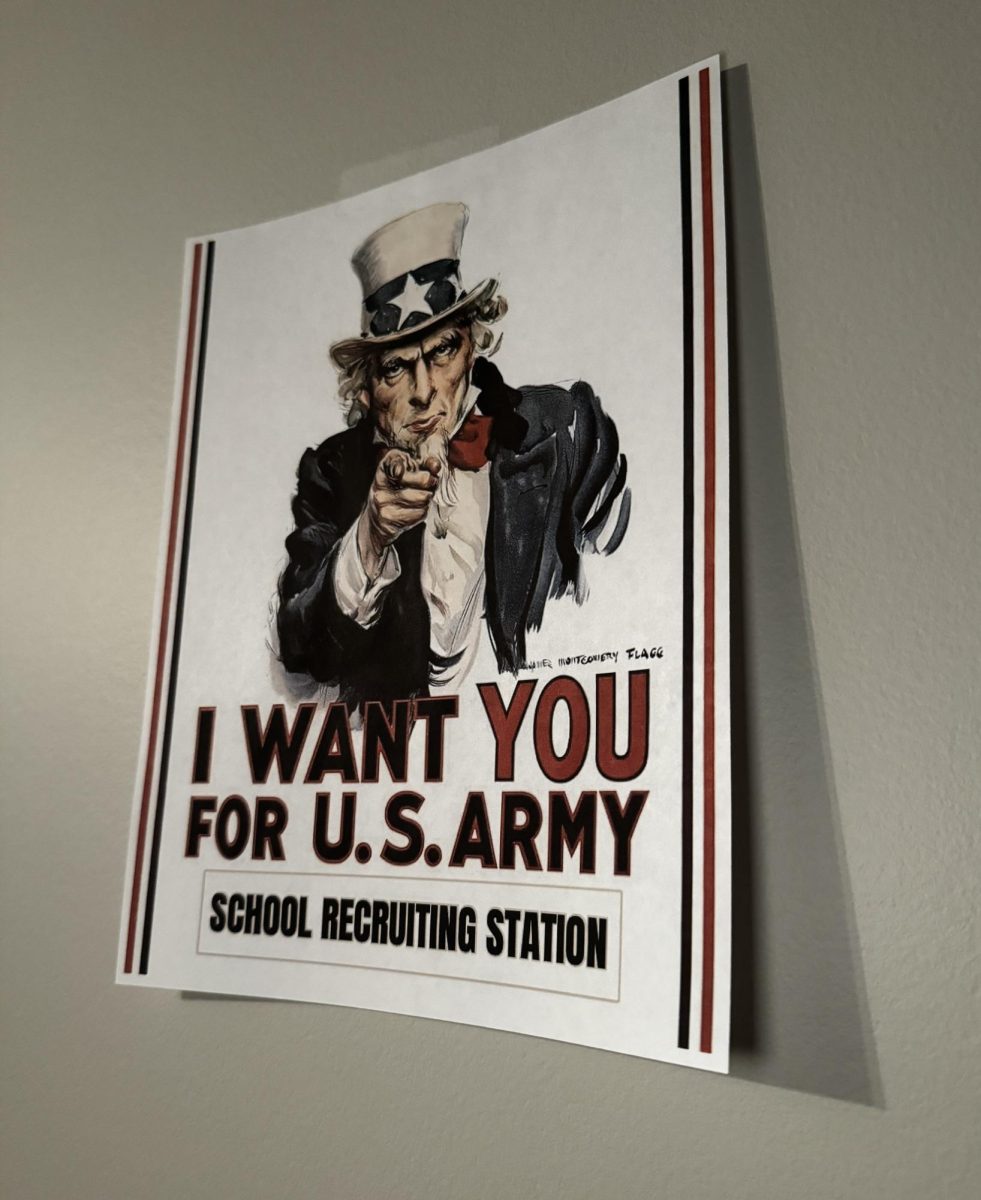Military recruiters have had a presence in schools since before World War I, but their relevance in the modern day is in question. Exposure to a wide variety of career paths for high school students is important for making educated life decisions, but do military recruiters have a place in schools?
A recruiter’s main purpose is to inform, inspire interest, and ultimately enlist a person into the Armed Forces.
When recruiters travel to Pleasant Valley they bring a variety of things to spark interest in students. These can range from branded merchandise and free food to pull up bars, rock walls and inflatable obstacle courses. Oftentimes, physical education classes spend a day working with recruiters. This ensures that every student has the opportunity to get involved and learn about a possible career path.
The fun activities that recruiters bring to schools could be misleading for students. Joining the military brings up a myriad of health and safety risks, aspects which are not advertised at face value in the short interactions during a school day.
The military also offers a plethora of benefits, many that would entice young adults.
2024 graduate Zane Klaus shared his motives behind enlisting.
“I knew I didn’t want to do a traditional form of schooling. Also I didn’t make great financial decisions throughout high school so I didn’t want to obtain a debt that would take my whole life to repay. So when I heard the military would pay for my school housing and my health insurance it made me decide that’s what’s best for me,” he said.
Around 78% of new recruits enlist between the ages of 18 and 24. Education funds, insurance coverage, a reliable income, affordable or free housing and travel opportunities are only some of the benefits that appeal to younger people. The young age of recruitment is likely tied to these opportunities.
For many young people, joining the military is a smart financial decision or an exciting career path. Having recruiters in schools allows for students to discover the option and allows for interested individuals to learn more about the different branches.
Opponents of military recruiting visits in public schools argue that unfair promises are made to children, but the military and recruiters have free access to public schools across the country regardless because of the No Child Left Behind Act.
Klaus said that school played a vital role in his decision. “It is what made me seriously start talking to recruiters. I talked to a navy recruiter and then the marine recruiters saw me and asked if I’ve ever thought about the marines. I had a meeting and now I’m enlisted waiting for my ship date,” he shared.
Enlistment often proves to be a good choice as U.S. veterans have a high satisfaction rating; 89% of Iraq and Afghanistan veterans have no regrets joining the military, would do it all again and agree that the opportunities were worth joining.
Veteran Anthony Kruse shared a little about his experience in the military.
“The most rewarding part is being a part of something bigger than yourself. Being a part of a team and knowing the people you serve with would give their lives for you, and you would do the same for them,” he remarked.
While recruiters may not directly enlist students in the cafeteria during their visits to PV, they do help spread awareness about an option that people may want to consider. The presence of military recruiters at PV continues to provide opportunities for student success.









